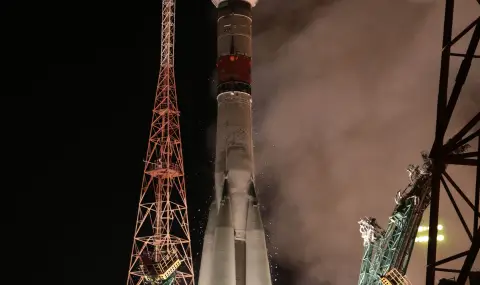The Russian satellite “Kosmos 2553“, believed to be part of a secret program with potential nuclear anti-satellite purposes, is likely no longer functional, US analysts reported, quoted by Reuters, BTA reports.
The satellite appears to be spinning out of control in orbit - a signal that it has lost functionality.
The satellite was launched by Russia shortly before the start of a full-scale invasion of Ukraine in 2022. Data from the radar network of the company LeoLabs and optical observations from Slingshot Aerospace show that the device has been in a state of uncontrolled rotation for the past year.
According to the United States, “Kosmos 2553“ is a development of Russian intelligence and serves as a platform for radiation tests. Last year, it was the focus of American warnings that Russia may be developing nuclear weapons capable of destroying entire satellite networks - including the SpaceX Starlink system, which the Ukrainian armed forces are actively using.
Although the satellite itself is not a weapon, US officials claim that it plays a role in the testing and development of such weapons. Moscow denies the accusations and maintains that the device is for purely scientific research purposes.
“Kosmos 2553“ is in an isolated orbit about 2,000 km above Earth - in a high-radiation zone that is usually avoided by communications and observation satellites.
In November 2024, LeoLabs detected unusual movements of the satellite using radar measurements from a global network of ground stations. By December, the company had a "high degree of confidence" that the device was spinning out of control, said Darren McKnight, a senior technical fellow at LeoLabs.
The US Center for Strategic and International Studies also commented that the observations "strongly suggest" that the satellite is no longer functioning.
The company Slingshot, which has been monitoring the object since its launch on February 5, 2022, also detected strange movements in May 2024. "The satellite's brightness became variable, a sign of potential out-of-control rotation," a company spokesman said.
However, recent observations suggest the satellite appears to have stabilized, said Belinda Marchand, chief scientific officer of Slingshot Aerospace.
The Russian Defense Ministry has not yet commented on the matter.
